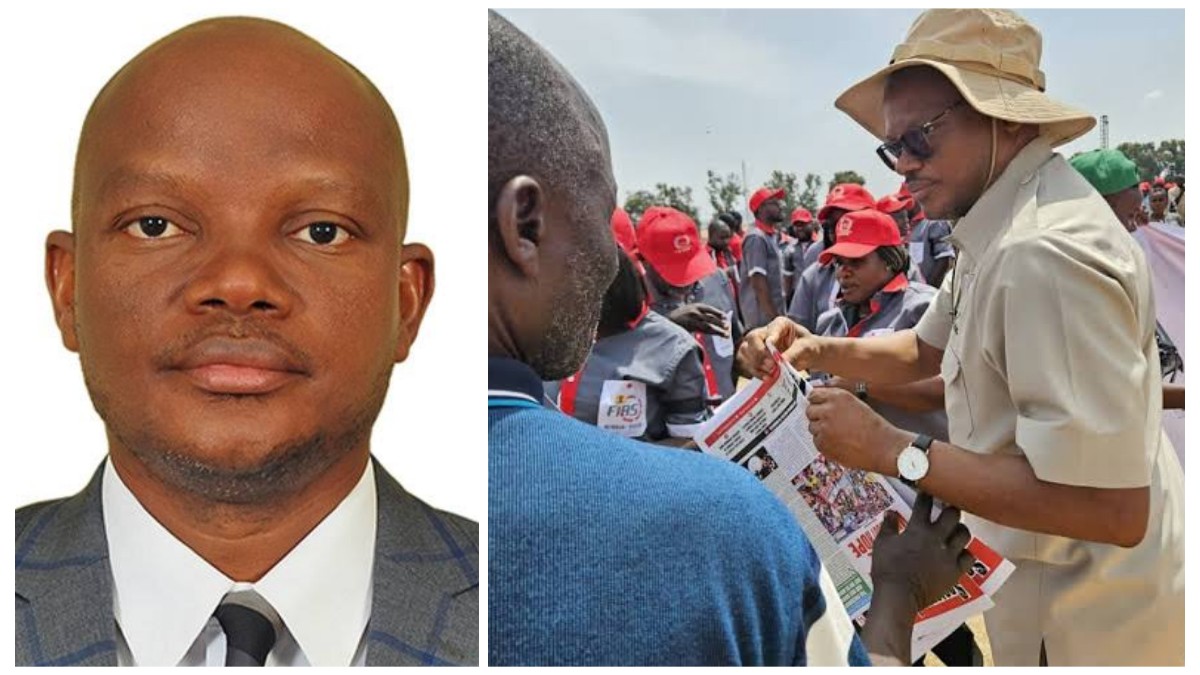EDUCATION

ASUU WARNS: NEGLECTING EDUCATION THREATENS NATIONAL DEVELOPMENT
The President of the Academic Staff Union of Universities (ASUU), Prof. Chris Piwuna, has accused the Federal Government of failing to prioritize education, noting that officials do not see the sector’s challenges as national concerns requiring collective responsibility.
Speaking during The Toyin Falola Interviews on Sunday in a virtual session titled “A Conversation with the ASUU President,” Piwuna said the indifference of key government officials has hindered sustainable reforms in the education sector.
According to him, members of the Federal Executive Council often view education challenges as the sole responsibility of the Minister of Education.
ASUU has frequently resorted to strikes to press for its demands, often citing government proposals that deviate from the 2009 FGN–ASUU Agreement, as well as unresolved issues including promotion arrears, withheld deductions, and insufficient funding and renovation of public universities.
“Members of the government, including ministers and chief executives, do not see education as their problem. When ASUU declares a strike, the Minister of Finance sees it as the Minister of Education’s issue; the Minister of Science and Technology does the same.
“But if the Minister of Finance understood that economic growth depends on a knowledgeable workforce, he would treat education as his responsibility too,” Piwuna said.
He added that ideological differences and corruption further complicate government responses to education issues.
“We in ASUU see education as a public good, but government officials often treat it as a profit-driven venture. Some now suggest that TETFund should fund private universities. Self-interest and contract inflation have overshadowed public service, turning TETFund into a marketplace,” he explained.
Historian Prof. Toyin Falola, the host, provided a historical overview of ASUU’s recurring industrial actions and their impact on academic calendars. Other panelists included Prof. Francis Egbokhare of the University of Ibadan, economist Prof. Sherrifdeen Tella, and Nigeria Labour Congress President, Joe Ajaero.
Prof. Egbokhare highlighted poor leadership, infrastructural decay, and weak accountability in Nigeria’s universities.
“The problem is a failure of leadership, especially within governing councils. Many buildings are poorly constructed in an era where sustainable design should be standard. Leadership selection and integrity must be addressed,” he said.
He also emphasized that funding alone is not enough. Universities could generate additional revenue if government ministries engaged them for research, consultancy, and training services.
NLC President Joe Ajaero urged both the government and ASUU to adopt a holistic approach to resolving the education crisis.
“Beyond autonomy, we must also improve primary and secondary education,” he said.
Economist Prof. Sherrifdeen Tella pointed out that neglecting research has contributed to Nigeria’s underdevelopment.
“When farmers benefit from high-yield seeds, it is due to research by academics. Unfortunately, research has long been neglected,” he said.
Speaking on the ongoing ASUU National Executive Council meeting in Taraba State, Piwuna said negotiations with the Federal Government were nearing conclusion.
“The terms of the agreement are shaping up, and in the next week or two, we’ll issue a definite statement. But the government’s current salary proposals are unacceptable, and we are prepared to fight for fair compensation.
“All the billionaires have private universities, yet none support public universities. Even past efforts to engage them yielded nothing,” he added.
Piwuna also highlighted the harsh living conditions facing academics, which leave little room for innovation.
“Some colleagues sleep in their offices with their families because of inadequate living conditions,” he said.
"This represents a significant development in our ongoing coverage of current events."— Editorial Board









